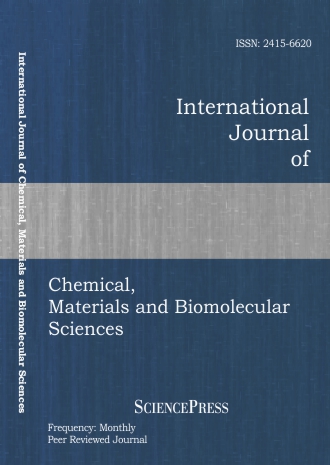
Scholarly
Volume:4, Issue: 2, 2010 Page No: 182 - 185
International Journal of Chemical, Materials and Biomolecular Sciences
ISSN: 2415-6620
1394 Downloads
Hydrogen Sulphide Removal Using a Novel Biofilter Media
Air emissions from waste treatment plants often consist of a combination of Volatile Organic Compounds (VOCs) and odors. Hydrogen sulfide is one of the major odorous gases present in the waste emissions coming from municipal wastewater treatment facilities. Hydrogen sulfide (H2S) is odorous, highly toxic and flammable. Exposure to lower concentrations can result in eye irritation, a sore throat and cough, shortness of breath, and fluid in the lungs. Biofiltration has become a widely accepted technology for treating air streams containing H2S. When compared with other nonbiological technologies, biofilter is more cost-effective for treating large volumes of air containing low concentrations of biodegradable compounds. Optimization of biofilter media is essential for many reasons such as: providing a higher surface area for biofilm growth, low pressure drop, physical stability, and good moisture retention. In this work, a novel biofilter media is developed and tested at a pumping station of a municipality located in the United Arab Emirates (UAE). The media is found to be very effective (>99%) in removing H2S concentrations that are expected in pumping stations under steady state and shock loading conditions.
References:
[1] Shareefdeen, Z., Herner, B., Webb, D., and Wilson, S. (2003). Hydrogen